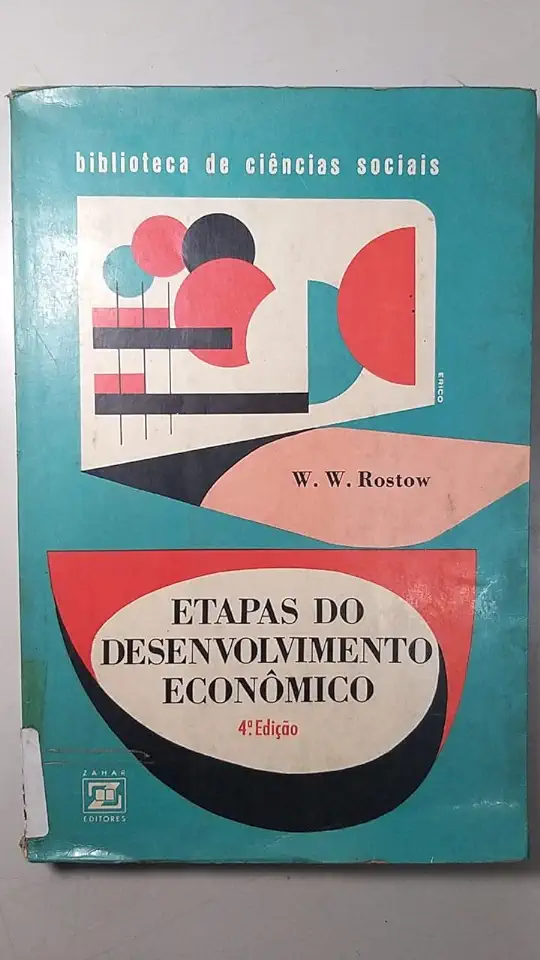
The Stages of Economic Growth - W. W. Rostow
The Stages of Economic Growth: A Non-Communist Manifesto
Introduction
In his seminal work, "The Stages of Economic Growth," W.W. Rostow presents a comprehensive and persuasive framework for understanding the process of economic development. Rostow argues that economic growth is not a linear or haphazard process, but rather follows a predictable sequence of stages, each characterized by distinct economic, social, and political features. By identifying these stages, Rostow provides a valuable tool for policymakers and economists to assess and guide the economic development of their countries.
The Five Stages of Economic Growth
Rostow's theory of economic growth is based on the idea that all societies progress through a series of five distinct stages:
- The Traditional Society: This is the initial stage of economic development, characterized by subsistence agriculture, limited technology, and a rigid social structure.
- The Preconditions for Take-off: This stage is marked by the emergence of new technologies, the growth of trade and commerce, and the development of a more flexible social structure.
- The Take-off: This is the critical stage of economic growth, during which a country experiences rapid industrialization and urbanization.
- The Drive to Maturity: This stage is characterized by sustained economic growth, technological advancement, and the emergence of a modern consumer society.
- The Age of High Mass Consumption: This is the final stage of economic growth, characterized by a high standard of living, widespread affluence, and a sophisticated economy.
Rostow's Theory in Practice
Rostow's theory of economic growth has been widely applied to analyze and understand the economic development of countries around the world. For example, Rostow's framework has been used to explain the rapid economic growth of East Asian countries such as Japan, South Korea, and Taiwan, as well as the economic challenges faced by countries in sub-Saharan Africa.
Policy Implications
Rostow's theory of economic growth has important policy implications for governments and policymakers. By understanding the different stages of economic growth, policymakers can design and implement policies that are tailored to the specific needs and challenges of their countries. For example, countries in the early stages of economic development may need to focus on policies that promote agricultural productivity and infrastructure development, while countries in the later stages of economic growth may need to focus on policies that promote technological innovation and human capital development.
Conclusion
"The Stages of Economic Growth" is a seminal work that provides a comprehensive and persuasive framework for understanding the process of economic development. Rostow's theory of economic growth is based on the idea that all societies progress through a series of five distinct stages, each characterized by distinct economic, social, and political features. By identifying these stages, Rostow provides a valuable tool for policymakers and economists to assess and guide the economic development of their countries.